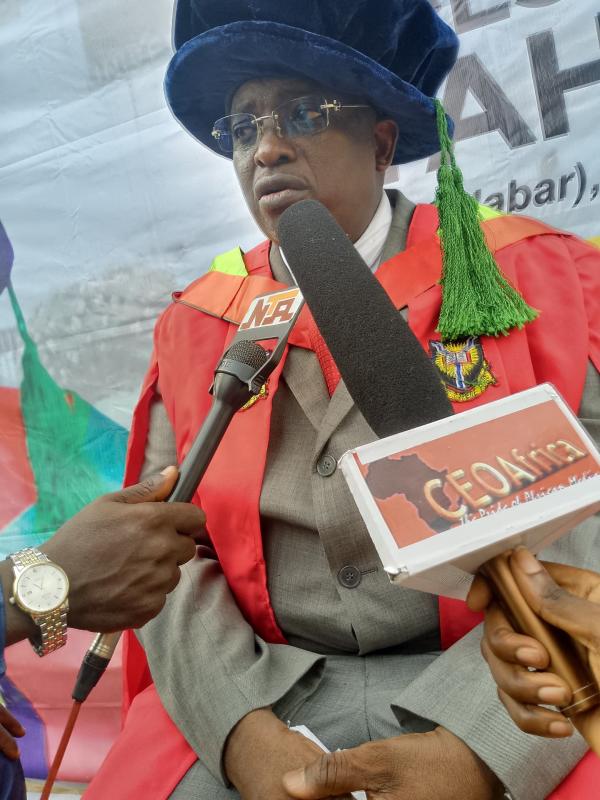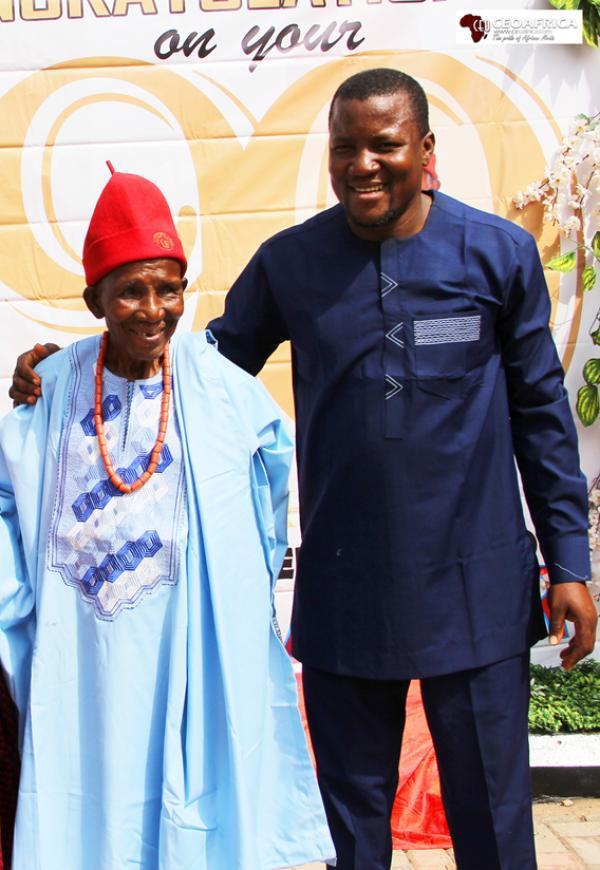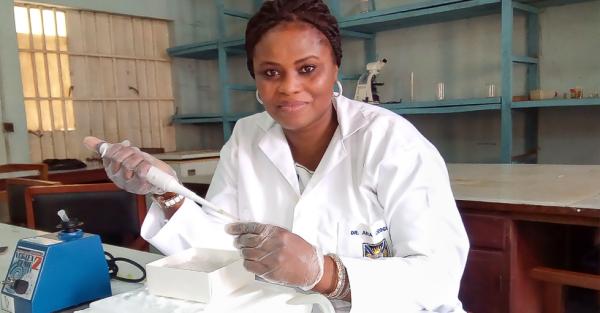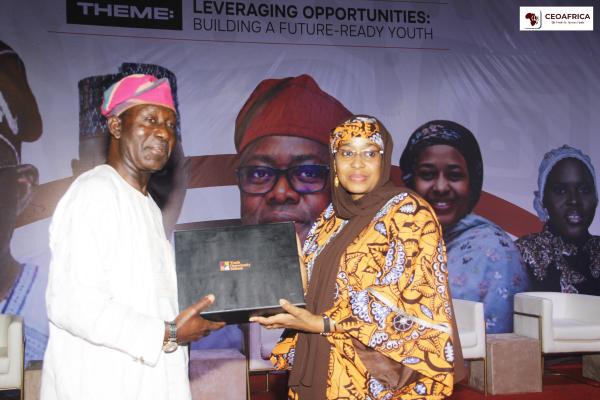
The University of Ibadan hosted the third and final phase of its 45th influential lecture series themed "Decolonizing Food Security for Enduring Multi-Sectoral Pathways to Poverty Mitigation in Nigeria" on Thursday, March 20, 2025. The session, delivered by Professor Mohammed Kuta Yahaya, a distinguished expert in Agricultural and Forestry, was held in the prestigious Trenchard Hall and attended by notable guests, including former Chief of Staff to President Muhammadu Buhari, Prof. Ibrahim Agboola Gambari; Director of the Nigeria Office, Dr. Kole Shettima; former Registrar of the Federal University of Minna, Mallam Muhammed Usman; and the Vice-Chancellor of the University, Prof. Kayode Adebowale, along with policymakers, academics, and stakeholders in agricultural rural development.
In his lecture, Professor Yahaya focused on the sub-theme "Multi-Sectoral Options in Decolonizing Food Security in Nigeria," asserting that the concept is integral to reinstating local food sovereignty and reducing dependence on imported food items. “Nigeria's reliance on specific food imports is a consequence of colonial legacies, further intensified by globalization and the promotion of modern industrialized farming methods,” he explained.
To illustrate the feasibility of achieving food security, he discussed a recent intervention that highlighted indigenous food systems. “Our project developed and promoted affordable, nutrient-rich complementary food using locally available ingredients as alternatives to imported baby foods, showing that indigenous crops can meet nutritional standards,” he emphasized. Professor Yahaya argued that strategic investment in modern processing facilities and quality control systems could enable local products to compete effectively in the market, revealing a market survey indicating that 70% of consumers prefer local products due to their freshness and availability.
He emphasized the significance of livestock in Nigeria's food systems and economy, noting that the livestock sector contributes approximately 2.5% to Nigeria’s GDP, according to the World Bank. “The sector has seen steady growth from 2011 to 2023, largely in response to urbanization and increased demand for protein-rich animal products. However, challenges persist, including insufficient feed resources, poor infrastructure, and security issues,” he stated.
Professor Yahaya highlighted the poultry sector's potential for decolonization of food security in Nigeria. “With an estimated value of 80 billion naira, the Nigerian poultry industry produces over 650,000 metric tons of eggs and 290,000 metric tons of poultry meat as of 2023. Nigeria leads in egg production in Africa,” he pointed out, noting the industry's projected growth of 20% annually.
To bolster food security in the face of population growth, he recommended fostering multi-sectoral collaboration and partnerships with international stakeholders for capacity building. “Students must be trained in mechanized agricultural practices rather than traditional methods,” he urged.
Following the lecture, in an exclusive interview, former Chief of Staff Prof. Gambari praised Professor Yahaya's insights, stating, “This was a wonderful lecture, carefully researched with clear recommendations. It underscores the importance of decolonizing our mindset towards agriculture and integrating livestock production into our economic framework. I encourage Nigerian youth to embrace agriculture and implement the strategies discussed today for the betterment of our nation.”
Dr. Kole Shettima echoed these sentiments, expressing appreciation for the tools and strategies provided in the lecture. “The recommendations offered should be implemented at federal, state, and local levels. The future of agriculture is promising, especially with the integration of mechanized tools and technology,” he noted.
In his remarks, Vice-Chancellor Prof. Adebowale stressed the importance of diversifying Nigeria's economy through agriculture. “We need to increase the input of science, technology, and innovation into our agricultural practices, as our current productivity levels are inadequate,” he asserted. He further encouraged the youth to recognize agriculture as a viable source of income.
Touching on the theme of colonization, Professor Yahaya emphasized the historical context that has influenced Nigeria's agricultural sector. “Our food system has been colonized; colonial masters encouraged us to produce cash crops for their industries while we remained dependent on imported goods. For example, Europe does not produce cocoa but benefits from its by-products,” he explained.
He remarked on the current administration's commitment to reforming the agricultural sector. “President Ahmed Tinubu’s reform agenda signals a positive shift in our approach to agriculture; my recommendations have been presented to him, and he assures us of his commitment to implementation,” Professor Yahaya stated.
Former Registrar, Mallam Usman expressed support for Professor Yahaya's vision, asserting, “If policymakers adopt his recommendations, Nigeria will move closer to addressing its food production challenges.”
The event concluded with heartfelt remarks from Professor Yahaya’s wife, Mrs. Yahaya, who expressed pride in her husband’s contributions. “This lecture is critical for our daily lives, as agriculture is part of every household. I hope the insights shared today will pave the way for significant developments in Nigeria’s agricultural sector,” she commented, underscoring the importance of food security in everyday life.
The engagement during the lecture highlighted a unified call for action to address the pressing issues of food insecurity and reliance on imports. As attendees left the Trenchard Hall, there was a palpable sense of optimism about the potential for transformation in Nigeria’s agricultural landscape.
Professor Yahaya’s lecture not only capped off the series but also served as a rallying cry for all stakeholders involved in the agricultural sector. He affirmed the necessity of working collaboratively across various sectors to ensure that food sovereignty becomes a reality in Nigeria.
“This lecture series has illuminated the pathways available to us,” he concluded. “We must capitalize on our resources, embrace modern practices, and commit to changing our food systems for the betterment of all Nigerians.”
The discourse generated by Professor Yahaya’s series has undoubtedly ignited a renewed focus on Nigeria's agriculture, fostering hope for a future where food security is a shared reality rather than a distant goal. As the community reflects on the knowledge gained during these sessions, the quest for sustainable agricultural practices remains at the forefront of national discourse.






















